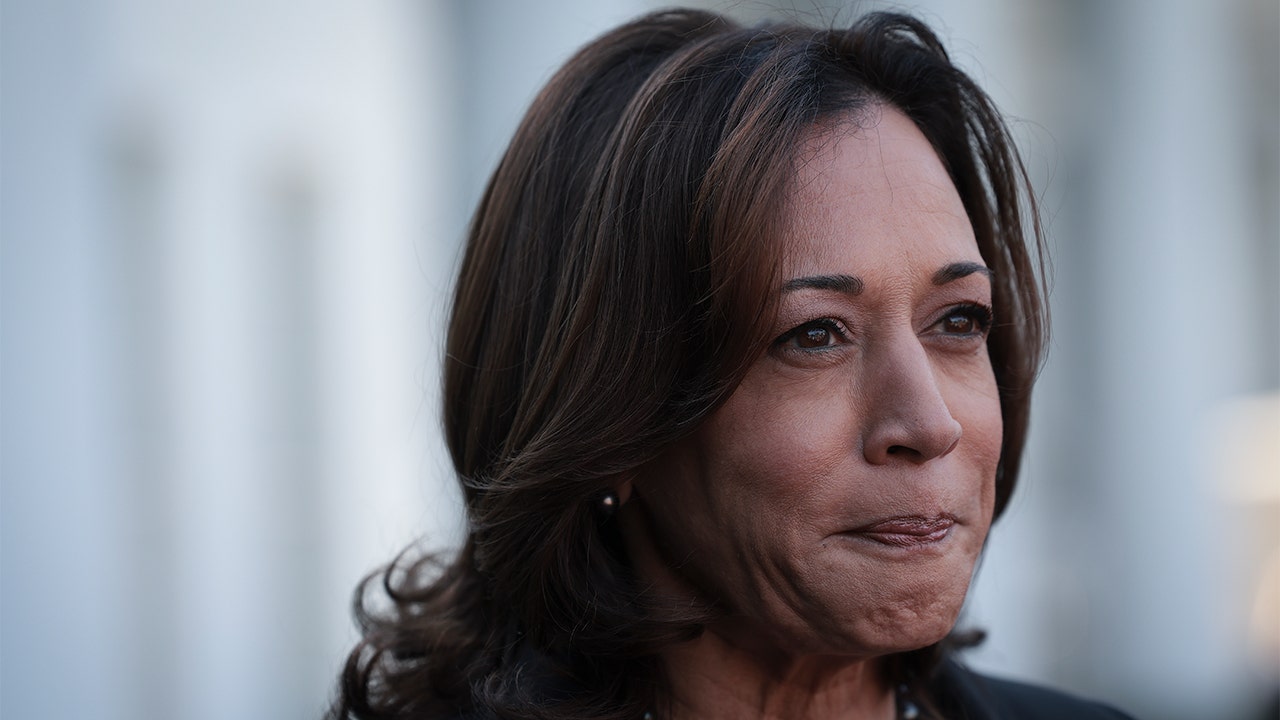Culture
They’re Political Adversaries, and They’re in Love

EVERYTHING’S FINE, by Cecilia Rabess
Does love conquer all? Does it now? Did it ever? These are questions Cecilia Rabess asks in her nimble, discerning debut, “Everything’s Fine.” The novel’s protagonist, Jess, is a young, Black recent college graduate in her first year as an analyst at Goldman Sachs when the book sets out. “The entire building smells like money,” Rabess writes, but Jess is not a fish out of water — her entire young adult life has been defined by the affluence of those around her.
Her awakening to this reality, as it is recounted in the book’s early pages, was rude yet motivating. Jess was raised by a single father in Nebraska and lived a relatively normal middle-class life. She couldn’t afford to take the first job she was offered, at a feminist magazine. Her math degree pointed her in two directions: a life of debt in academia, or fat paychecks in finance. She chose finance.
At Goldman Sachs, the politically liberal Jess becomes reacquainted with her former classmate Josh, a white conservative analyst (though he maintains he’s a “moderate”) whom she hates — until she doesn’t. Their friendship, prickly at first, grows warmer over the first half of the novel. By the time the two finally got together, I found myself jubilant, if cautiously so. Rabess has a gift for chemistry, and the chemistry between Jess and Josh is almost tangible; their eventual union is, well, climactic.
In most other love stories, this is when the fissures would appear. But Josh and Jess’s relationship has shown deep craters since the beginning. Josh is a Republican of the Wall Street variety: fiscally conservative and, in theory, socially liberal, yet his insistence on seeing the world through abstractions, and his firm belief in his own reasonableness, means he’s unable (or unwilling) to see anything from anyone else’s perspective, including Jess’s. Jess comes up against this fundamental incompatibility in their worldviews again and again but sweeps everything under the rug to be dealt with later, because Josh’s unshakable confidence translates into effortless charisma. He’s funny, patient, generous, smart, loving. He cherishes Jess, unquestionably. What’s easier to question is whether he truly sees and understands Jess.
As Jess and Josh’s relationship deepens and cracks, so does her career. She gains and loses jobs, always trying to balance her goal of acquiring wealth and stability with her desire to honor the truth and her ethics. She keeps her beloved father apprised of none of this, so that he can believe her life is composed of success and smooth sailing, not hardships and definitely not a white boyfriend.
The novel draws to a close in the lead-up to the 2016 election, when the challenges in Jess and Josh’s relationship become impossible to ignore. Words, symbols, events that some — like Jess — are able to turn away from in the Obama era become impossible to brush away as Donald J. Trump and Hillary Clinton face off. Finally, after a vicious argument about a Make America Great Again hat, Josh tells Jess, “We’re exactly the same. … You don’t have a problem with the system, just your place in it.”
The ending of “Everything’s Fine” is one of the best I’ve read in years. It asks whether our choices stop and end with us. Is it ethical to date someone who goes against everything you believe in? Is it right to work in an industry that profits off a broken system? What do we owe, and to whom? For Josh, the answer is clear: “Jess, you don’t owe anyone,” he says to her as she grapples with the distressing thought that her principled father would be grievously disappointed in her. “You don’t have any unique obligation to help.”
Does she? Rabess offers no easy answers.
Angela Lashbrook is a writer whose work has appeared in The Guardian, Slate, Vice and The Times.
EVERYTHING’S FINE | By Cecilia Rabess | 326 pp. | Simon & Schuster | $27.99

Culture
Who is the GOAT: LeBron or Jordan? Current players weigh in

Some debates deserve a stage of their own.
So while our (anonymous) NBA player poll was released Monday, with a record 142 players weighing in on some of the most interesting questions surrounding their league, we decided to dive even deeper into the age-old GOAT discussion because there’s a fascinating voting trend that simply must be explored.
While Michael Jordan won the “Greatest of All Time” category for the third consecutive time, his once-massive lead over LeBron James has shrunk significantly with every passing poll. This time around, James almost took the mantle. The data speaks loud and clear…
- 2019 (the first time The Athletic conducted the poll): Jordan earned 73 percent of the votes, with James second at 11.9 percent (a gap of 61.1 percentage points)
- 2023: Jordan earned 58.3 percent of the votes, with James second at 33 percent (a gap of 25.3 percent)
- 2024: Jordan earned 45.9 percent of the votes, with James second at 42.1 percent (a gap of just 3.8 percent)
But why has Jordan’s lead shrunk so much? We wanted to let the players themselves explain.
The consistent rationale among LeBron voters, both old and new, is that his longevity is the ultimate difference-maker between the two. He’ll be 40 years old on Dec. 30, yet is still great enough to be widely considered one of the best players in today’s game. While Jordan was epic in his 14-year career, from his 6-0 record in the NBA Finals to his five Most Valuable Player awards and his incredible two-way play, many players shared the view that James’ ability to remain elite for more than two decades puts him over the top.
Jordan, to review, retired twice (in 1993 and 1998) during his storied career and played 14 seasons in a 19-year span. When he was James’ age, in the last of his two forgettable seasons in Washington, he was putting up good numbers on a bad Wizards team that went 37-45 in both of his postseason-less campaigns. James, meanwhile, has saved some of his best work for last:
- He broke Kareem Abdul-Jabbar’s all-time scoring record on Feb. 7, 2023
- He led the Los Angeles Lakers to the Western Conference finals three months later
- He led the Lakers to an (inaugural) In-Season Tournament title in December
- He became the first player to be named to a 20th All-Star team in February
- He was one of three players to average at least 25 points, eight assists and seven rebounds this season (the others were Nikola Jokić and Luka Dončić)
Out of respect for the GOAT incumbent, we’ll begin by highlighting this nuanced opinion from a Jordan voter who believes MJ’s influence on the entire sports world — not just basketball — is a deciding X-factor.
“The greatest ever is LeBron James, (but) the greatest of all time is Michael Jordan,” the player said. “The difference is stats. When you talk about impact, Michael Jordan. When you talk about stats and numbers, LeBron. Mike has the most impact, so that makes him the greatest ever in all aspects because he doesn’t just impact basketball. He impacts people who look up to him in tennis and football. But you won’t hear that about LeBron. … LeBron changed the game, but more so how it’s played. Jordan changed how it’s viewed. And that’s a big difference.”
Yet as the many LeBron voters detailed below, it goes much deeper than that for them. The microphone is theirs:
“I think what Jordan did in (14) years is crazy, but you’d have to add a whole lot of other things (for him to catch up with James). I think we got MVP fatigue with ‘Bron. I think he should have like seven (MVPs, rather than four). I think ‘Bron should have D-Rose’s (Derrick Rose) MVP (in 2010-11). I think he should have KD’s (Kevin Durant) MVP (in 2013-14). I think he should have James Harden’s MVP (in 2017-18). There’s a lot of MVPs he should have had.”
“Who would I draft in an all-time draft? That’s the way I look at it, you know what I’m saying? Some people look at it like, ‘Who do I want taking the last shot?’ Blah, blah, blah, all this other sh–. But in an all-time draft, I’m choosing LeBron. Why? I get 20 years of greatness, and I get somebody who plays one through five (point guard through center). And let me just say, the person I choose No. 2 would be Shaq (O’Neal), the most dominant player of all time. So in my GOAT debate, I would go 1-2 like that. And this is coming from a Kobe (Bryant) fan.
“Winning, era-wise, is tough. And obviously, you’ve got Mike as the killer. But then, how does he (adjust to the rise of) the 3-point shot? There are questions if we take off the Teflon MJ cloak. If you took players from right now and put them back then, we’re faster, stronger, more skilled. We’d kill them. It is what it is. Part of the reason Michael was Michael was he was the first of this generation’s athletes: 6-foot-6, 40-inch vertical, which back in the ’80s was insane. But we’ve got rookies and role players doing that nowadays. ‘Bron is 6-foot-9, 260 pounds, with a 50-inch vertical. That’s probably what it’s gonna look like in 2045. And then we’re gonna be looking at it like, ‘I don’t know if I could play with those little kids.’ (Nowadays) in high school, people are taking off from the free-throw line and windmill dunking on people. When I was in school, barely finishing a windmill was a thing. … Now, it’s like these kids are windmilling on kids, doing it in eighth grade. It’s part of evolution. And even with basketball, once people see sh– is possible, they try to do it. When I was a kid, Kobe barely did the through-the-legs dunk. That’s what we aspired to do. Now people are looking at Zach LaVine and the free-throw line 360 and other wild sh–. … It’s part of how this sh– grows.”
“(LeBron) for sure. I think him being able to literally do everything and win (titles) with so many different organizations (the Cleveland Cavaliers, Miami Heat and Lakers) and also having the most points in his career, along with figuring out how to have longevity in his career. Everybody’s looking to have longevity, and he figured it out. He figured it out at the highest level. It doesn’t make any sense.”
“LeBron James is without a doubt the greatest player to ever touch a basketball. What he brings to the court, and for long he has, that’s my thing.”
“I’d say LeBron. Just to be able to do it for 20 years, it’s insane. I think it’s more of a longevity thing that you have to look at there, and (how) still every year he’s playing at the highest level. With the highest expectations (placed on him), he had everything to lose in terms of coming into the league. It would’ve been very easy for him to underachieve and not meet those expectations, I think he’s far surpassed them, all of them, somehow. … Being on the floor, the closer you are to the game, the more of a sense (you get) for how great LeBron is, how he sees things, how he talks. His impact on the game, his gravity on the game is felt.”
“(LeBron), easily. He’s the best at everything, His longevity, his consistency, his availability. And he’s won.”
“For me, personally, growing up, (James) has just been the pinnacle. Being a Midwest kid, I remember him being in Ohio at (St. Vincent-St. Mary High School), and I’m hearing about him as a young kid. And just seeing him come up and seeing him do everything that he’s done since he’s been in the league has just been amazing. It’s a testament to him and all the hard work. It’s not normal what he’s doing. At all.”
“Longevity, consistency for 20 years-plus.”
Required reading
(Illustration: John Bradford / The Athletic; top photos of LeBron James and Michael Jordan: Justin Tafoya, Nathaniel S. Butler / Getty Images)
Culture
Ten Hag thinks Manchester United are unlucky. He's only partly right

You may have watched Manchester United reach their second FA Cup final in as many seasons by the leather of Haji Wright’s left boot and considered it a fortunate escape that their collapse from 3-0 up against Championship opposition did not deserve.
Erik ten Hag did not think United got lucky, though. If anything, he was at his most impassioned in his post-match press conference when discussing his side’s misfortune, specifically for Coventry City’s stoppage-time penalty, arguing it was an “absolutely crazy” decision to award a handball against Aaron Wan-Bissaka.
Ten Hag took much the same line of argument before United’s last Premier League outing against Bournemouth. While accepting that “like a minister” he will bear ultimate responsibility for results, he could not help but bemoan his side’s bad luck over the past eight months.
“It’s huge. A lot went against us this season,” he said. And though United’s misfortune is not limited to refereeing calls in Ten Hag’s mind, that was where he trained his focus.
“You see all the penalties we conceded last week (against Chelsea and Liverpool) could also have been going in another way. You think over the course of a season sometimes you will get one, sometimes you will concede one. This season it feels like we only concede.”
United have been awarded five penalties this season and have conceded 11, with four given away in the opening four games of the Champions League group stage. While most of those in Europe were not especially contentious, many of the six conceded in the Premier League have sparked debate.
Some have been soft — Rasmus Hojlund and Casemiro’s concessions against Manchester City and Wolverhampton Wanderers in particular — and others more debatable. None, it should be noted, have resulted in the officials responsible being stood down for the subsequent round of fixtures, as happened after Wolves were denied a penalty at Old Trafford on the opening weekend of the season.
All those decisions, however, are a matter of opinion. Outside of offside, most refereeing calls are subjective by nature and, as the era of VAR has taught us, there are different definitions of what constitutes a clear and obvious mistake.
Ten Hag has more substantive grounds for complaint on arguably the biggest single reason for United’s struggles: player injuries and enforced absences. The revolving door of United’s treatment room has seen all but four senior squad members — Bruno Fernandes, Andre Onana, Diogo Dalot and Alejandro Garnacho — pass through it at some point this year.
The 2-2 draw at Bournemouth was the first time United have named an unchanged line-up since the opening two games of a season ravaged by injury. According to data from transfermarkt, United’s squad have collectively spent 1,710 days sidelined since the start of the season.
Ten Hag said last week he has not been able to pick his “favourite” line-up since the 2-1 victory over Manchester City at Old Trafford in January of last year. Just as United’s injuries have appeared to abate, new concerns have cropped up.
Fresh problems for Willy Kambwala, Mason Mount and Sofyan Amrabat meant United’s absentee list swelled into double figures again ahead of the semi-final, while Marcus Rashford and Scott McTominay both appeared to be carrying issues when substituted at Wembley.
Marcus Rashford walks off after being injured at Wembley (Glyn Kirk/AFP via Getty Images)
The absence of either of his first-choice left-backs for the majority of the season has, Ten Hag feels, had a material effect on United’s ability to play the way he wants. Lisandro Martinez’s unavailability has deprived him of a player who had a transformative effect during his first year in Manchester.
But is it all down to luck or could certain things be done differently? United have set to work restructuring the medical department since the appointment of head of sports medicine Gary O’Driscoll. Sources, who asked to remain anonymous to protect their relationships, believe there have been noticeable improvements since the former Arsenal club doctor’s arrival and that restructuring continues apace.
Ten Hag’s training methods have also come under scrutiny and can be intense, particularly for those not involved in matches, who are put through rigorous sessions the day after games to maintain a consistent level of physical load across the squad. The fast, direct and often chaotic style of play that has been adopted this season also has to be considered as part of that equation.
Everybody knows by now that United face a lot of shots on goal — 574 in total in the Premier League this season. No top-flight team has faced as many on a per-game basis, but in the context of recent history, that figure only becomes all the more remarkable.
Since 2016-17, eight of the 15 top-flight sides to have faced more shots than United have been relegated. None have finished higher than 15th. At the current rate, United will surpass all of those 15 sides and yet even in the absolute worst-case scenario, they cannot finish any lower than 14th.
Ten Hag has defended United’s apparent willingness to give up shots by arguing they are predominantly low-quality chances and he has a point. The average shot United have faced in the league this season has had a 10 per cent chance of resulting in a goal.

Andre Onana has been busy this season (Clive Brunskill/Getty Images)
Brentford and Newcastle have the worst record in that regard, with the average shot having a 13 per cent chance of being scored. The difference between a 13 per cent and 10 per cent chance is small but significant. A marginal gain, if you like.
But if you concede at least 20 shots a game, as United have regularly been doing of late, and one in every 10 goes in, you’ll need to score three to win. The eighth-worst attack in the league, with only 47 goals in 32 league games, cannot count on that.
United’s 47 goals is level with Luton Town and in line with expected data, too. Defensively, Ten Hag’s side have conceded 48 goals — one of the Premier League’s better records — but from an expected total of 59.8.
Take one away from the other and United’s expected goal difference is -12.2, the fifth-worst in the league. Suddenly, that actual goal difference of -1 does not look so bad after all.
But nothing can change perceptions and narratives around a side like a favourable run of fixtures, in the short term at least, and United now face the Premier League’s bottom two at Old Trafford in the space of four days.
It should not need saying, but United are a better side than both Sheffield United and Burnley by any comprehensive measure. They should not need to get lucky to prove it.
(Top photo: Glyn Kirk/AFP via Getty Images)
Culture
How hockey helped make J.J. McCarthy one of NFL Draft's most intriguing prospects

Dan Capuano’s funeral at St. Rita of Cascia High School on Chicago’s Southwest Side was standing-room only. Hundreds of firefighters from Chicago and around the country attended. Members of the St. Jude Knights youth hockey club were there, too, wearing their jerseys.
Capuano’s sons, Andrew and Nick, played for the Knights, a Northern Illinois Hockey League program that feeds many of Chicago’s powerhouse Catholic schools. Nick was on the 2012-13 team that won the Squirt A state championship.
Dan had devoted much of his time to the Knights before he died in the line of duty while fighting a warehouse fire on the South Side on Dec. 14, 2015.
That title-winning Knights team wanted to get back together to honor Capuano and his family, so in March 2016, a new team was formed. “Team Capuano” would play in the Shamrock Shuffle at the University of Notre Dame over a weekend. Their jerseys would be red and white and include Dan’s badge number: 1676.
There was an early hiccup. “The guy that was running the tournament, he didn’t want to let us in,” said Ralph Lawrence, a former St. Jude coach. “He said that the competition would be way too high.”
Team Capuano just wanted to play together again. It got in. Things got chippy. During one game, a hit from behind sent center Luke Lawrence, Ralph’s son, hard into the boards.
“Could have paralyzed him,” Ralph said. “It was a bad hit.”
That’s when 13-year-old wing J.J. McCarthy rushed in. The future five-star recruit, Michigan quarterback, national champion and soon-to-be NFL draft pick was livid. He didn’t drop his gloves, but a scrum ensued.
“It was a little cheap hit in the corner,” Luke said. “J.J. was the first one to me, come into the corner and exchange a few words with the kid.”
“J.J. went off on the kid and got kicked out of the game,” Ralph said.
The whole scene was unlike McCarthy. He was typically more collected on the ice — his father, Jim, one of the primary organizers of Team Capuano, didn’t like the outburst — but Luke was J.J.’s close friend, and the tournament was an emotional experience. And in hockey, leadership often involves going into the corners.
“Those kids played for something more than hockey that weekend,” Ralph said.
When it was over, Team Capuano — the team some thought didn’t belong in South Bend — won the tournament. A year later, they returned and repeated as champions.
Ice is in McCarthy’s blood. His mother, Megan, was a competitive figure skater. He started playing hockey in kindergarten. Organized football came later.
McCarthy is on record calling hockey his first love. What he experienced on the ice would ultimately help make him a better quarterback — one now on the verge of being drafted in the first round.
He was 10 when the Knights defeated Winnetka in the Tier II Squirt A state championship in March 2013. He and Luke Lawrence assisted on the only goal of the game. It was a special season for a special group, one that eventually split up as players changed teams and levels.
McCarthy (far right) got used to winning early as part of a championship squad with the St. Jude Knights. (Courtesy of Ralph Lawrence)
McCarthy and Lawrence were inseparable for years. Competitive in everything, they played so much and so well together on the same line that they earned a nickname referencing Henrik and Daniel Sedin, the twin stars from the Vancouver Canucks.
The Lawrences and McCarthys stopped at Dunkin’ Donuts before practices or games. The dads would get coffee. Luke would get a bagel or a banana. McCarthy always ordered a strawberry frosted donut. Ralph Lawerence advised against the pre-skate pastry, but it became McCarthy’s go-to. (After McCarthy signed an NIL deal at Michigan, a medium iced coffee and a strawberry frosted donut became his official Dunkin’ Donuts meal in the Detroit area.)
“We laugh till this day,” Ralph said. “And it didn’t hurt him. His speed was fine. His stomach didn’t get upset.”
As a coach, Lawrence emphasized playing positionally strong in the neutral zone and the importance of forechecking and backchecking. But McCarthy played the game with feel.
“He knew where the puck was going to be,” Ralph said. “He knew what the other team was going to do.”
As Lawrence watched McCarthy play football, he saw similar things happen on the field.
“He had an instinct,” Lawrence said. “It was the same way he had it on the ice.”
McCarthy and Lawrence moved on to the Northern Express, another Tier II team that played in the Central States Development Hockey League, which expanded outside of Illinois. It was time for a new challenge.
“I don’t think I’ve ever been as excited as a coach,” Northern Express coach Brent Dolan said.
Dolan’s team excelled defensively. The team’s forecheck was relentless, but it didn’t score a lot.
“When J.J. and Luke came, that instantly changed,” Dolan said. “I would say our goals per game went up by two — and that’s massive in hockey.”
Checking was now permitted, too. There would be contact and a lot of it, a new and different level of physicality. McCarthy could give hits, take hits — and avoid them. The extra contact also meant extracurriculars, and McCarthy had no problem mixing it up.
“If I needed anything or if I was getting banged up in the corner, J.J.’s always there for me, getting in there and making sure that nothing’s gonna escalate,” Luke said. “He would always stick up for me.”

By the time he hung up his skates, McCarthy had developed into a fast, physical forward. (Courtesy of Ted Eagle)
Hockey requires quick decision-making under duress and amid contact. For McCarthy, as a forward, that often meant receiving the puck while exiting his own zone and deciding what to do as an opposing defenseman barreled his way.
Pass the puck quickly to a teammate? Make a quick cut around the defenseman? Chip the puck past the opponent and go after it?
“People who don’t play hockey don’t really understand how fast of a sport it is and how many different components go into it,” Dolan said. “You have to make a decision with the puck, and you got to know where to go with it and execute that all in a split second. That’s not overexaggerating it. That probably helped J.J.’s vision in football.”
A shift on the ice can feel like standing in the pocket: chaos everywhere, violence nearby. You have to see it — or, more importantly, feel it — to overcome it. McCarthy, who was on Northern Express’ power play, had the poise and spatial awareness to operate in the maelstrom.
“Hockey definitely slowed down football,” Luke Lawrence said.
In particular, McCarthy developed a Patrick Kane-like knack for avoiding major hits. Dolan later saw him make hockey-like cuts playing for Michigan.
“He’s trying to avoid getting drilled,” Dolan said. “The quick, subtle movements that you make in hockey probably helped him in the pocket and then also while he’s out on the edge rushing or scrambling.”
In the summer between seventh and eighth grade, McCarthy started training with Greg Holcomb, a private QB coach from Next Level Athletix. Holcomb saw a lot of natural ability. He also saw hockey’s influence.
“One of the reasons why he was so good at throwing off platform and moving around and changing direction is probably because in hockey he would get absolutely killed if he wasn’t able to skate past guys or make them miss,” Holcomb said. “Hockey definitely helped him.”
The first game of McCarthy’s final hockey season came, fittingly enough, at Yost Ice Arena on the University of Michigan campus.
He was playing for the 14-and-under Chicago Young Americans, a Tier I team, during his freshman year at Nazareth Academy high school. McCarthy had always been talented enough to play at the highest level of youth hockey, but football overlapped with hockey too much, especially on the weekends.
CYA coach Ted Eagle didn’t mind the conflict because of who McCarthy was.
McCarthy had good hands and a quick release. He played hard, generated turnovers and scored. “He was a beast in hockey,” Eagle said. “He threw the body around and he wasn’t kind of this less skilled, bigger guy. He was just fast and physical.”
And he was a spark — a tone-setter. In hockey, you need that.
“I relied on him, too,” Eagle said. “It kind of sets the tone for the rest of the team when one or two guys are kind of pushing the pace.”

GO DEEPER
J.J. McCarthy’s draft ceiling: What film shows about Michigan QB’s NFL potential
McCarthy missed the first game of the tournament at Michigan because of a Nazareth football game then showed up in the first period of their second game against the Pittsburgh Penguins Elite junior team. Eagle considers it one of his favorite hockey memories. “He raced up, and he showed up mid-game and scored a couple of goals against one of the top teams in the country,” Eagle said.
There were three hockey practices every week, mostly after football practice, which resulted in some very late nights for a high school freshman. And there were the out-of-town games missed because of football games on Friday nights or Saturday mornings. CYA would play nearly 70 games that season, many that required travel, and McCarthy made more than 40 of them, according to Eagle.
The back-and-forth between football and hockey required discipline, but McCarthy was different. Eagle described him as a “front-of-the-line guy” in practice. He paid attention to the smallest details, asked plenty of questions, talked through different scenarios. Eagle said McCarthy craved the information to get better. Teammates were drawn to him.
“I’m sure a lot of people are aware of this by now,” Eagle said, “but he was just like an ultimate leader.”
McCarthy hung up his skates after his freshman year of high school to focus on football. During his sophomore season the next year — and just days before Illinois’ Class 7A state championship game in 2018 — McCarthy’s throwing hand collided with a defensive lineman’s helmet as he released a pass.
“As a quarterback, it’s the kiss of death,” said Brody Budmayr, Nazareth’s former quarterbacks coach.
Everything stopped. McCarthy was in pain — serious, excruciating pain. After a few nervous moments, the sophomore starter with Division-I interest wanted to test his hand. He dropped back to pass, and then …
“It’s just the pain and anguish of you know it’s broke,” Budmayr said. “It’s him actually dropping to his knees and us thinking, ‘Wow, this is not good.’”
But there was no way he was missing Nazareth’s state championship game against St. Charles North. His parents found an orthopedic surgeon to work on Thanksgiving, and playing became a matter of pain tolerance.
That wasn’t a problem. McCarthy was a hockey player.
In the state championship game, McCarthy was 15-for-21 passing for 201 yards and a touchdown as Nazareth dominated 31-10. A legend was born.
“Ultimately, he was the one that had to go out there,” Budmayr said. “He taped it up and he led us to a state championship.”

McCarthy’s hockey coaches are convinced his experience on the ice informed his play on the gridiron. (Gregory Shamus / Getty Images)
On May 11, 2019, McCarthy announced he was committing to Michigan and coach Jim Harbaugh. During the recruiting process, Nazareth head coach Tim Racki told the story about McCarthy and his broken thumb.
“When I told him he was a hockey player, (Harbaugh’s) eyes lit up,” Racki said. “And then when I told him that story, that sealed the deal in terms of the kid’s toughness and the grit that he had.”
When McCarthy announced his college decision on social media, he thanked three hockey coaches — Lawrence, Dolan and Eagle — for allowing him to play both sports together.
“I would not be where I am without having had hockey in my life,” he wrote.
(Illustration: Sean Reilly / The Athletic; photos: courtesy of Ted Eagle, Scott Taetsch / Getty Images
-

 World1 week ago
World1 week agoIf not Ursula, then who? Seven in the wings for Commission top job
-

 Movie Reviews1 week ago
Movie Reviews1 week agoFilm Review: Season of Terror (1969) by Koji Wakamatsu
-

 World1 week ago
World1 week agoCroatians vote in election pitting the PM against the country’s president
-

 News1 week ago
News1 week agoGOP senators demand full trial in Mayorkas impeachment
-

 Politics1 week ago
Politics1 week agoTrump trial: Jury selection to resume in New York City for 3rd day in former president's trial
-

 World1 week ago
World1 week agoThe Take: How Iran’s attack on Israel unfolded
-

 World1 week ago
World1 week ago'You are a criminal!' Heckler blasts von der Leyen's stance on Israel
-

 Movie Reviews1 week ago
Movie Reviews1 week agoMovie Review: The American Society of Magical Negroes

















